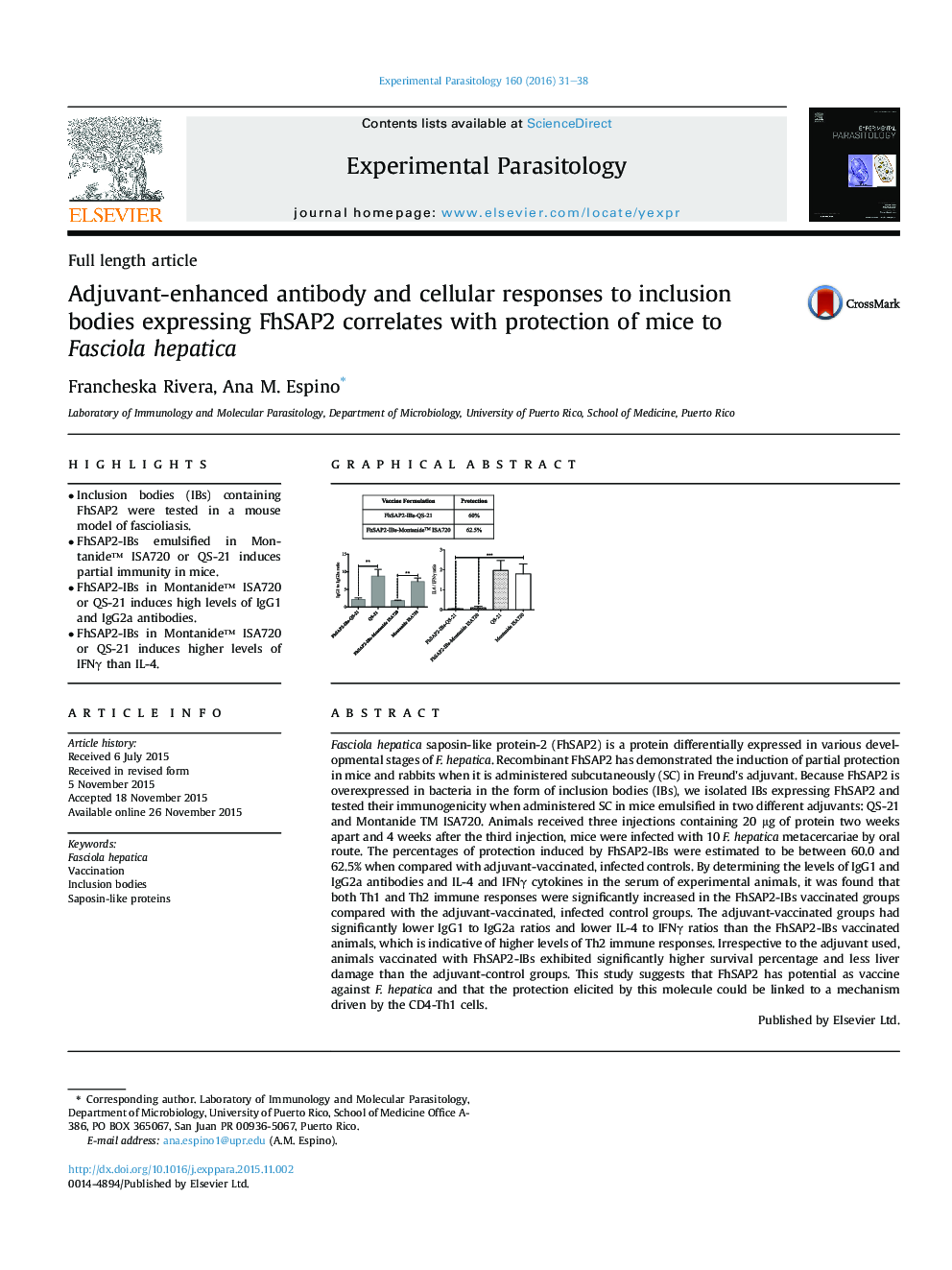| Article ID | Journal | Published Year | Pages | File Type |
|---|---|---|---|---|
| 4370991 | Experimental Parasitology | 2016 | 8 Pages |
•Inclusion bodies (IBs) containing FhSAP2 were tested in a mouse model of fascioliasis.•FhSAP2-IBs emulsified in Montanide™ ISA720 or QS-21 induces partial immunity in mice.•FhSAP2-IBs in Montanide™ ISA720 or QS-21 induces high levels of IgG1 and IgG2a antibodies.•FhSAP2-IBs in Montanide™ ISA720 or QS-21 induces higher levels of IFNγ than IL-4.
Fasciola hepatica saposin-like protein-2 (FhSAP2) is a protein differentially expressed in various developmental stages of F. hepatica. Recombinant FhSAP2 has demonstrated the induction of partial protection in mice and rabbits when it is administered subcutaneously (SC) in Freund's adjuvant. Because FhSAP2 is overexpressed in bacteria in the form of inclusion bodies (IBs), we isolated IBs expressing FhSAP2 and tested their immunogenicity when administered SC in mice emulsified in two different adjuvants: QS-21 and Montanide TM ISA720. Animals received three injections containing 20 μg of protein two weeks apart and 4 weeks after the third injection, mice were infected with 10 F. hepatica metacercariae by oral route. The percentages of protection induced by FhSAP2-IBs were estimated to be between 60.0 and 62.5% when compared with adjuvant-vaccinated, infected controls. By determining the levels of IgG1 and IgG2a antibodies and IL-4 and IFNγ cytokines in the serum of experimental animals, it was found that both Th1 and Th2 immune responses were significantly increased in the FhSAP2-IBs vaccinated groups compared with the adjuvant-vaccinated, infected control groups. The adjuvant-vaccinated groups had significantly lower IgG1 to IgG2a ratios and lower IL-4 to IFNγ ratios than the FhSAP2-IBs vaccinated animals, which is indicative of higher levels of Th2 immune responses. Irrespective to the adjuvant used, animals vaccinated with FhSAP2-IBs exhibited significantly higher survival percentage and less liver damage than the adjuvant-control groups. This study suggests that FhSAP2 has potential as vaccine against F. hepatica and that the protection elicited by this molecule could be linked to a mechanism driven by the CD4-Th1 cells.
Graphical abstractFigure optionsDownload full-size imageDownload as PowerPoint slide
